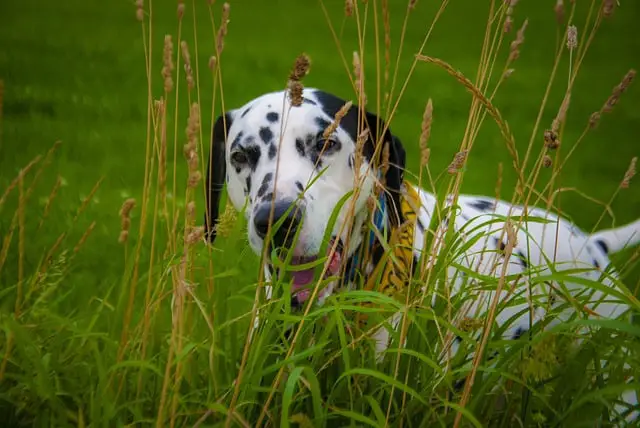Firecrackers and fireworks phobia is common in dogs and can cause stress, health problems and dangerous losses

Not only cats can have a phobia of firecrackers and fireworks. Eight out of ten dogs experience fear of noise and these festive explosions, a situation that will be repeated this Christmas. The canine phobia noise is not a minor problem causes them stress can cause deviations and involves a serious health risk. Below you will find tips to protect your dog from the noise of firecrackers and fires : consult with the veterinarian, provide a safe haven at home, anticipate dog walks and never let go of a dog from the leash, to avoid straying.
Loud noise is frequent during Christmas celebrations. However, cats are not the only ones who are scared during the explosion of firecrackers and fireworks. Eight out of ten dogs also suffer from extreme fear during the explosion of firecrackers and fireworks.
Noise can compromise the quality of life of a dog: the anxiety generated by the strong sound impact has negative consequences for its health. The canine heart races, stress shoots up and this can even shorten the years of the animal’s life.
Some dogs develop a phobia of the noise of firecrackers. The most frequent signs to recognize this canine problem are the following: the dog tends to walk from one side to the other in a compulsive way, its breathing accelerates and it suffers from panting. In addition, tremors arise and the dog hides.
But what to do to help a dog afraid of firecrackers and fireworks? Here are some tips.
1. Consult with the vet
Curing a noise phobia in dogs may require the help of a veterinarian to advise us. The canine doctor can even advise us an anxiolytic in the most serious cases, that is, when the animal is at risk of becoming ill from noise.
The dog’s medication must be offered before the firecrackers appear. In this way, stress will be significantly reduced.
2. A dog shelter
Before the firecrackers and fires start, we can install the dog in the most isolated place in the house and close the windows, as well as draw the curtains. There you can place your favorite toy, a plate with water and your bed.
When firecrackers and fires start, many dogs react by hiding. This refuge will provide them with security, so it is not advisable to force them to leave it.
3. The dog walks: before the firecrackers
During the time of firecrackers and fireworks, it is a good idea to take the dog out for a walk before the noise session begins. Both dogs and cats will be safer indoors when the celebrations begin and thus we avoid the danger of our dog getting lost while trying to escape from the noisy focus.
In any case: the leash during outings is even more important than usual.
4. Do not punish the dog with fear
We should not punish or reprimand a dog with fear of firecrackers and fireworks: the animal is in a state of anxiety and panic.
Experts advise to provide it with shelter and show normality. We can reassure him verbally, but not pick him up. Too much petting during the stress episode can reinforce your insecurity.
Dogs: an unusual ear

The hearing of dogs differs from humans in its great ability to hear high-frequency sounds. This is the reason why, for them, certain loud and loud sounds cause them uneasiness .
Dogs can pick up high wave densities per second and hear sounds made by bats and rats. While people only pick up sounds of up to 20,000 cycles per second, dogs reach 60,000 cycles per second.
Dogs have had to get used to ignoring or tolerating the sounds that are produced in the human environment. Although they are annoying, they have adapted to reduce your stress level.
This acclimatization process is called auditory ambientation and it occurs gradually, from when the dog is a puppy until it becomes an adult. However, there are dogs that are more nervous and reactive to shrill sounds, which makes it more difficult for them to complete this adaptation process.
